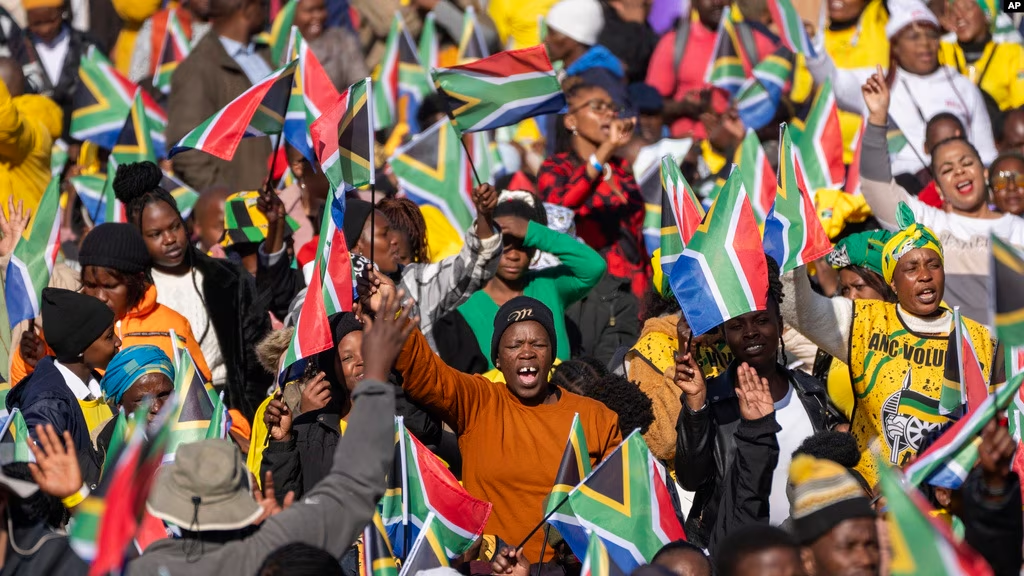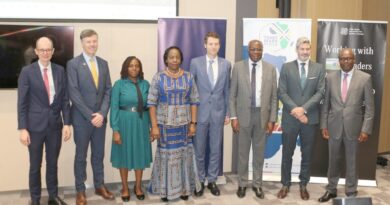South Africa’s New Coalition Government Revives Racial Tensions
South Africa’s new coalition government, which unites a Black president and a white opposition leader, has unintentionally stirred old racial tensions in a nation still grappling with the legacy of apartheid.
President Cyril Ramaphosa’s African National Congress (ANC) and the Democratic Alliance (DA) formalised their power-sharing agreement last week. This coalition, celebrated by some as a symbol of unity, has left many Black South Africans uneasy about a white-led party regaining governmental influence.
The memories of the apartheid regime, which ended 30 years ago, continue to haunt the Black majority, who suffered severe oppression under white minority rule and still endure poverty and inequality.
With the coalition, South Africa is poised to see more white individuals in senior government roles than at any time since apartheid ended. White people constitute about 7% of the population of 62 million.
The ANC, which dismantled apartheid in 1994 under Nelson Mandela, saw its uninterrupted political dominance end in the pivotal May 29 election, necessitating a coalition. The DA, rooted in liberal white parties opposed to apartheid, garnered the second-largest share of votes. Both parties have promoted their alliance as essential for addressing South Africa’s significant socioeconomic challenges.
However, the DA’s recent controversies have reignited racial tensions. Renaldo Gouws, a DA lawmaker, was suspended for racist slurs he made in a decade-old social media video. The South African Human Rights Commission plans to take legal action against him. The DA, long battling allegations of favouring whites, is now under renewed scrutiny.
The Congress of South African Trade Unions, a crucial ANC ally, condemned Gouws’ remarks as indicative of a DA that is “soft on racists.” They asserted that the DA must address this issue to be accepted as a legitimate coalition partner.
DA leader John Steenhuisen defended his party, rejecting claims of it being white-centric. He pointed out that the DA’s electoral success in a Black-majority country disproves such allegations. The DA includes both Black and white members, but its last Black leader departed in 2019, criticising the party’s commitment to Black South Africans.
Political analyst Angelo Fick observed that the DA’s perceived “sense of whiteness” stems from its historical disinterest in addressing Black South Africans’ racial concerns.
The coalition has also faced backlash from the MK Party of former President Jacob Zuma and the Economic Freedom Fighters (EFF). These parties refused to join the coalition, criticising the DA’s perceived commitment to white interests. EFF leader Julius Malema argued against what he termed “white monopoly power,” highlighting stark racial disparities in poverty rates.
This dissatisfaction among Black South Africans, frustrated by enduring inequality, contributed to the ANC’s declining support. The coalition’s challenges may further weaken the ANC.
In his inauguration speech, Ramaphosa acknowledged the persistent racial divisions. “Our society remains deeply unequal and highly polarised,” he stated. The ANC views the coalition as a revival of Mandela’s ideals of racial reconciliation.
“To us, it doesn’t matter whether the cat is black or white,” said ANC Secretary-General Fikile Mbalula, invoking Mandela’s inclusive vision for governance. “Fundamentally, the question is how do we move the country forward.”
Source: VOA



